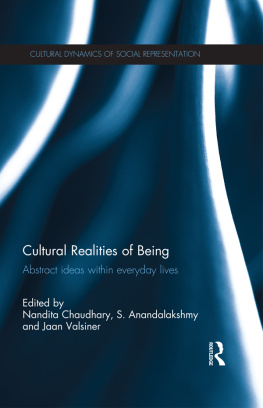Jaan Valsiner - Social Philosophy of Science for the Social Sciences
Here you can read online Jaan Valsiner - Social Philosophy of Science for the Social Sciences full text of the book (entire story) in english for free. Download pdf and epub, get meaning, cover and reviews about this ebook. year: 2019, publisher: Springer International Publishing, genre: Politics. Description of the work, (preface) as well as reviews are available. Best literature library LitArk.com created for fans of good reading and offers a wide selection of genres:
Romance novel
Science fiction
Adventure
Detective
Science
History
Home and family
Prose
Art
Politics
Computer
Non-fiction
Religion
Business
Children
Humor
Choose a favorite category and find really read worthwhile books. Enjoy immersion in the world of imagination, feel the emotions of the characters or learn something new for yourself, make an fascinating discovery.
- Book:Social Philosophy of Science for the Social Sciences
- Author:
- Publisher:Springer International Publishing
- Genre:
- Year:2019
- Rating:4 / 5
- Favourites:Add to favourites
- Your mark:
- 80
- 1
- 2
- 3
- 4
- 5
Social Philosophy of Science for the Social Sciences: summary, description and annotation
We offer to read an annotation, description, summary or preface (depends on what the author of the book "Social Philosophy of Science for the Social Sciences" wrote himself). If you haven't found the necessary information about the book — write in the comments, we will try to find it.
Social Philosophy of Science for the Social Sciences — read online for free the complete book (whole text) full work
Below is the text of the book, divided by pages. System saving the place of the last page read, allows you to conveniently read the book "Social Philosophy of Science for the Social Sciences" online for free, without having to search again every time where you left off. Put a bookmark, and you can go to the page where you finished reading at any time.
Font size:
Interval:
Bookmark:

Theory and History in the Human and Social Scienceswill fill in the gap in the existing coverage of links between new theoretical advancements in the social and human sciences and their historical roots. Making that linkage is crucial for the interdisciplinary synthesis across the disciplines of psychology, anthropology, sociology, history, semiotics, and the political sciences. In contemporary human sciences of the 21st there exists increasing differentiation between neurosciences and all other sciences that are aimed at making sense of the complex social, psychological, and political processes. Thus new series has the purpose of (1) coordinating such efforts across the borders of existing human and social sciences, (2) providing an arena for possible inter-disciplinary theoretical syntheses, (3) bring into attention of our contemporary scientific community innovative ideas that have been lost in the dustbin of history for no good reasons, and (4) provide an arena for international communication between social and human scientists across the World.
More information about this series at http://www.springer.com/series/15826

This Springer imprint is published by the registered company Springer Nature Switzerland AG
The registered company address is: Gewerbestrasse 11, 6330 Cham, Switzerland
Social sciences are crucial in our understanding of the increasingly globalizing ways of living in the twenty-first century. Rapid technological advancements in our societiesEast and West, North and Southare paralleled with resistances by traditional social orders to them. Local social norms and political control systems (Chaudhary, Hviid, Marsico, & Villadsen, ) constitute the braking systems in development. Development and resistance to it go hand in handleading to tensions in the building of new knowledge.
Societies worldwide are characterized by disquietude in which various kinds of tensions are constantly growing. The volcano of our global society can easily erupt into a new global wareconomic, discursive, in this volume)becoming a battleground of fights between various institutions? What can be the stake of a political establishmenta US president declaring a decade as that of the study of the brain or European Union requiring specific breakthroughs in its Research Councils science funding programs in the actual processes of scientists intellectual endeavors in trying to create new knowledge? What is the value of university administrators who expect scientists to bring in research grants with overheads in the actual making of new knowledge? These are difficult questions on the border areas of real
Font size:
Interval:
Bookmark:
Similar books «Social Philosophy of Science for the Social Sciences»
Look at similar books to Social Philosophy of Science for the Social Sciences. We have selected literature similar in name and meaning in the hope of providing readers with more options to find new, interesting, not yet read works.
Discussion, reviews of the book Social Philosophy of Science for the Social Sciences and just readers' own opinions. Leave your comments, write what you think about the work, its meaning or the main characters. Specify what exactly you liked and what you didn't like, and why you think so.







